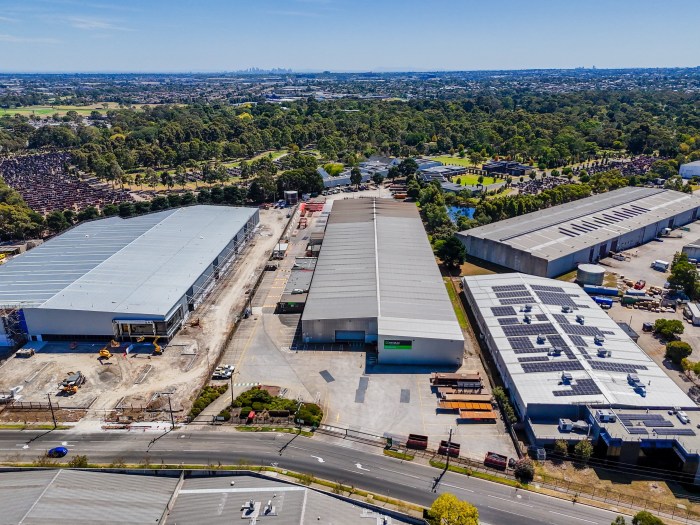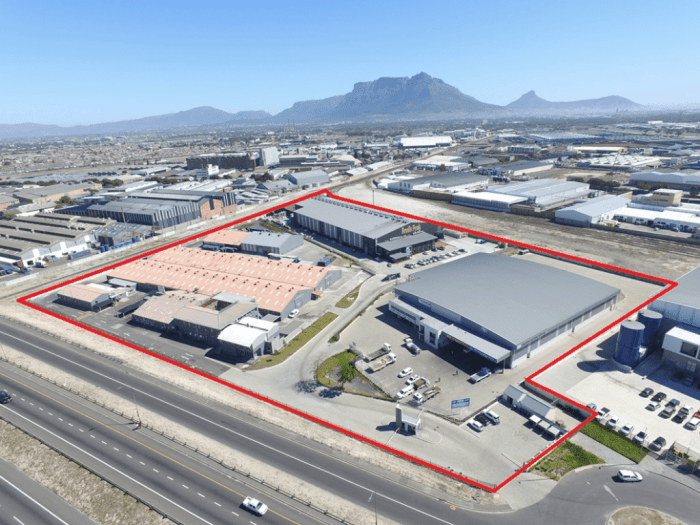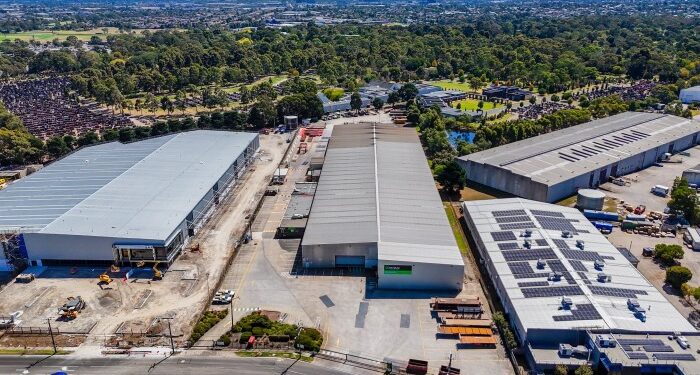Delving into the realm of industrial property for sale, this introduction aims to provide a captivating overview of the various facets surrounding this topic. From different property types to key factors influencing prices, this guide will equip you with essential knowledge in the realm of industrial real estate.
As we navigate through the intricacies of industrial property for sale, we will uncover valuable insights and information that can aid in your understanding of this dynamic market.
Types of Industrial Properties

Industrial properties come in various types, each serving different purposes and catering to specific industries. Let's explore the key differences between warehouses, manufacturing plants, and distribution centers.
Warehouses
Warehouses are used for storing goods and materials before distribution or sale. They are typically large, open spaces with high ceilings to accommodate inventory efficiently. Warehouses often have loading docks for trucks to load and unload goods easily. Examples of warehouses for sale include standalone facilities in industrial parks or multi-tenant warehouses in urban areas.
Manufacturing Plants
Manufacturing plants are where raw materials are transformed into finished products. These properties are equipped with heavy machinery, assembly lines, and specialized equipment for production. Manufacturing plants require specific zoning and infrastructure to support industrial operations. Properties listed for sale may include fully operational plants or vacant facilities ready for new production.
Distribution Centers
Distribution centers are crucial for the storage and distribution of goods to retailers, wholesalers, or directly to consumers. These properties are strategically located near major transportation hubs for efficient logistics. Distribution centers are equipped with sorting facilities, automated systems, and ample storage space.
Industrial properties listed for sale as distribution centers may include modern logistics facilities with advanced technology for streamlined operations.
Factors Influencing Industrial Property Prices
In the industrial property market, several factors play a crucial role in determining the price of a property. Understanding these factors is essential for both buyers and sellers to make informed decisions.Location is one of the primary factors that significantly impact the price of industrial properties.
Properties located in prime industrial areas or near major transportation hubs tend to command higher prices due to their convenience and accessibility. On the other hand, properties in remote or less desirable locations may have lower price tags.The size of the industrial property is another important factor that influences its sale price.
Larger properties typically come with higher price tags, as they offer more space for operations and potential expansion. Smaller properties, while more affordable, may have limitations in terms of capacity and scalability.In addition to location and size, other factors such as zoning regulations and infrastructure can also affect industrial property prices.
Zoning regulations dictate how the property can be used, which can impact its value. Properties with favorable zoning for industrial use may be priced higher than those with restrictions.Furthermore, the availability of essential infrastructure such as utilities, roads, and public transportation can also influence property prices.
Properties with easy access to necessary amenities are often more valuable than those in areas with inadequate infrastructure.Market trends play a significant role in determining industrial property prices as well. Fluctuations in demand, supply, and economic conditions can cause prices to rise or fall.
Understanding current market trends and forecasts is crucial for making informed decisions in buying or selling industrial properties.
Legal Considerations for Buying Industrial Properties
When purchasing industrial properties, there are various legal considerations that buyers need to take into account to ensure a smooth transaction and avoid any potential issues down the line.
Environmental Assessments
Before buying an industrial property, it is crucial to conduct thorough environmental assessments to identify any potential contamination or hazardous materials on the site. This helps buyers understand the risks involved and allows them to make informed decisions about the purchase.
Zoning Laws and Permits
Understanding zoning laws and permits is essential when buying industrial properties
. Zoning regulations dictate how the property can be used, so it is important to ensure that the intended use aligns with the zoning requirements. Additionally, obtaining the necessary permits for the desired use of the property is crucial to avoid legal complications in the future.Tax Implications
There are tax implications associated with buying industrial properties that buyers need to consider. Property taxes, capital gains taxes, and other taxes may apply, so it is important to understand these implications and factor them into the overall cost of the property.
Steps Involved in Purchasing Industrial Properties
When it comes to buying industrial properties, there are several key steps you need to follow to ensure a smooth and successful transaction. From searching for properties to completing the closing process, each step plays a crucial role in acquiring the industrial property of your choice.
Searching for Industrial Properties for Sale
- Start by identifying your specific needs and requirements for the industrial property, such as location, size, zoning restrictions, and amenities.
- Utilize online real estate platforms, work with a commercial real estate agent, attend property auctions, and network with industry professionals to find suitable industrial properties for sale.
- Visit potential properties in person to assess their condition, infrastructure, and suitability for your business operations.
Making an Offer and Negotiating the Purchase Price
- Submit a written offer to the seller or their agent, including the proposed purchase price, earnest money deposit, contingencies, and proposed timeline for closing.
- Negotiate with the seller to reach a mutually acceptable purchase price and terms, taking into account market conditions, property condition, and the seller's motivation to sell.
- Consider engaging a real estate attorney or consultant to help draft and review purchase agreements, ensuring all legal aspects are covered.
Due Diligence Process when Buying Industrial Properties
- Conduct thorough inspections of the industrial property, including structural, environmental, and compliance assessments, to identify any issues or risks.
- Review the property's financial records, leases, zoning regulations, and other relevant documents to ensure there are no hidden liabilities or encumbrances.
- Engage professionals such as appraisers, surveyors, and engineers to provide expert opinions on the property's value, boundaries, and condition.
Closing Process and Transferring Ownership of Industrial Properties
- Coordinate with the seller, agents, attorneys, and other parties involved to finalize the sale agreement, resolve any outstanding issues, and set a closing date.
- Attend the closing meeting to sign the necessary legal documents, transfer funds, and officially take possession of the industrial property.
- Record the property transfer with the relevant government authorities, update ownership records, and comply with all legal requirements to complete the purchase process.
Ultimate Conclusion

In conclusion, industrial property for sale presents a unique opportunity for investors and businesses alike. By understanding the types of properties available, the factors influencing prices, legal considerations, and the steps involved in purchasing, one can make informed decisions in this sector.
Whether you're a seasoned investor or a first-time buyer, this guide serves as a valuable resource in your industrial property journey.
Question Bank
What are the common types of industrial properties available for sale?
Industrial properties can include warehouses, manufacturing plants, and distribution centers, each catering to different business needs.
How does location impact the price of industrial properties?
Location plays a crucial role in determining the price of industrial properties, with properties in prime locations commanding higher prices due to accessibility and demand.
What legal requirements should I consider when buying industrial properties?
Purchasing industrial properties involves legal considerations such as zoning laws, permits, environmental assessments, and tax implications that need to be thoroughly reviewed.
What steps are involved in purchasing industrial properties?
From searching for properties to negotiating the purchase price, conducting due diligence, and completing the closing process, purchasing industrial properties requires a systematic approach to ensure a successful transaction.












